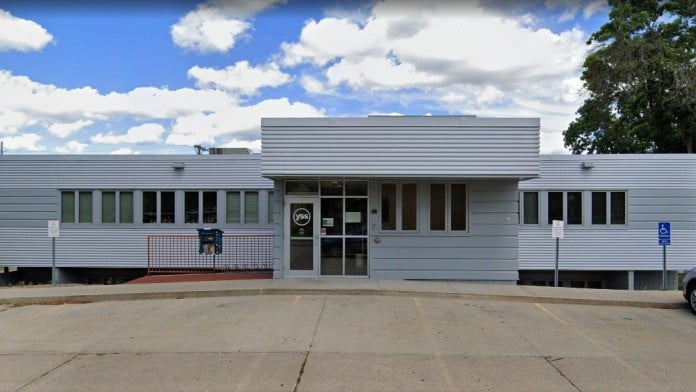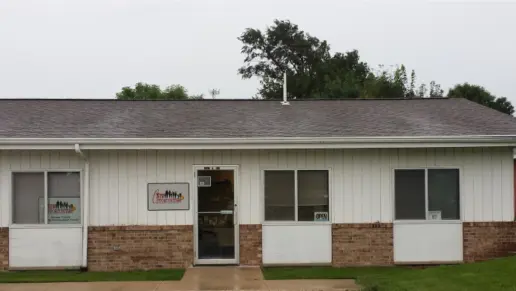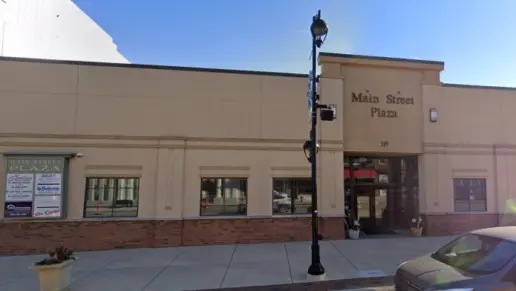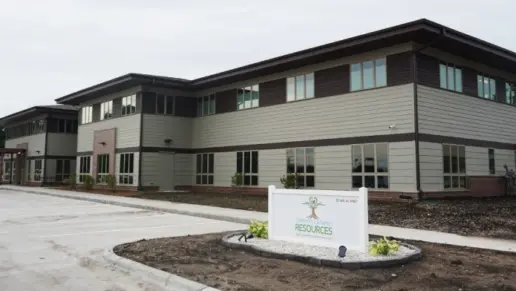I just want to say thank you to YSS for being there for my family and me in our difficult times. You've helped us so much and thanks to you we've come a long way. Thanks!!!
About YSS Family Counseling and Clinic
Youth & Shelter Services (YSS) Family Counseling Clinic offers integrated health and behavioral health services in Ames, Iowa. They offer mental health therapy, substance use counseling, psychiatric services, and behavioral health intervention services. YSS has other locations that offer residential drug rehab and youth shelters. They offer appointments in person or virtually via telehealth for Iowa residents.
Substance use counselors, sometimes called addiction counselors, provide supportive, judgment-free emotional, mental and behavioral health services to help individuals overcome addiction. They help clients develop the resources, tools and skills they need to progress towards sobriety. They may use a range of treatment options such as play therapy, eye movement desensitization and reprocessing, trauma focused cognitive behavioral therapy and systems training for emotional predictability and problem solving.
Intake of new patients begins with a comprehensive evaluation to determine each patient’s health and the impact that substance abuse has had on them. The counselor will create a treatment plan. Counselors may also refer patients to community resources such as peer support groups or drug rehab programs.
Counselors will also help family members navigate their loved one’s illness and how to nurture the relationship that may have become fraught or strained as a result of substance abuse. They can offer education for family and friends and provide resources on how to best support their loved one during recovery. If needed, the counselor can set up family therapy sessions.
YSS counselors will help patients develop a relapse prevention plan. This may include building a support network, lifestyle changes, and understanding each person’s warning signs and how to manage them. They empower clients to achieve success and strengthen their resilience as they navigate the road to recovery.
YSS Family Counseling Clinic accepts many insurance providers such as ComPsych, Magellan Health, Kaiser Permanente, Bright Health, Wellmark, HCSC and TRICARE. Contact your insurance provider to confirm benefits as out of network coverage may vary.
Latest Reviews
Rehab Score
Gallery

Location
Accepted Insurance
Other Forms of Payment
Private insurance refers to any kind of healthcare coverage that isn't from the state or federal government. This includes individual and family plans offered by an employer or purchased from the Insurance Marketplace. Every plan will have different requirements and out of pocket costs so be sure to get the full details before you start treatment.
Self-pay involves paying for treatment out of your own pocket. You can use savings or credit, get a personal loan, or receive help from family and friends to fund your treatment. If you don't have insurance or your insurance plan doesn't cover a specific program, self-pay can help ensure you still get the care you need.
Financial aid can take many forms. Centers may have grants or scholarships available to clients who meet eligibility requirements. Programs that receive SAMHSA grants may have financial aid available for those who need treatment as well. Grants and scholarships can help you pai for treatment without having to repay.
Sliding scale payments are based on a client's income and family size. The goal is to make treatment affordable to everyone. By taking these factors into account, addiction recovery care providers help ensure that your treatment does not become a financial burden to you or your family, eliminating one barrier to care.
Medicare is a federal program that provides health insurance for those 65 and older. It also serves people under 65 with chronic and disabling health challenges. To use Medicare for addiction treatment you need to find a program that accepts Medicare and is in network with your plan. Out of pocket costs and preauthorization requirements vary, so always check with your provider.
Military members, veterans, and eligible dependents have access to specific insurance programs that help them get the care they need. TRICARE and VA insurance can help you access low cost or no cost addiction and mental health treatment. Programs that accept military insurance often have targeted treatment focused on the unique challenges military members, veterans, and their families face.
Medicaid is a state based program that helps lower-income individuals and families pay for healthcare. Medicaid covers addiction treatment so those enrolled can use their coverage to pay for rehab. When a program accepts Medicaid the client often pays very little or nothing out of their own pocket.
Addiction Treatments
Levels of Care
Treatments
The goal of treatment for alcoholism is abstinence. Those with poor social support, poor motivation, or psychiatric disorders tend to relapse within a few years of treatment. For these people, success is measured by longer periods of abstinence, reduced use of alcohol, better health, and improved social functioning. Recovery and Maintenance are usually based on 12 step programs and AA meetings.
Drug rehab in Iowa is available in many formats. A variety of inpatient and outpatient options provide programs that are tailored to individual needs, making recovery possible for everyone.
Many of those suffering from addiction also suffer from mental or emotional illnesses like schizophrenia, bipolar disorder, depression, or anxiety disorders. Rehab and other substance abuse facilities treating those with a dual diagnosis or co-occurring disorder administer psychiatric treatment to address the person's mental health issue in addition to drug and alcohol rehabilitation.
A combined mental health and substance abuse rehab has the staff and resources available to handle individuals with both mental health and substance abuse issues. It can be challenging to determine where a specific symptom stems from (a mental health issue or an issue related to substance abuse), so mental health and substance abuse professionals are helpful in detangling symptoms and keeping treatment on track.
Opioid rehabs specialize in supporting those recovering from opioid addiction. They treat those suffering from addiction to illegal opioids like heroin, as well as prescription drugs like oxycodone. These centers typically combine both physical as well as mental and emotional support to help stop addiction. Physical support often includes medical detox and subsequent medical support (including medication), and mental support includes in-depth therapy to address the underlying causes of addiction.
Programs


Clinical Services
Cognitive Behavioral Therapy (CBT) is a therapy modality that focuses on the relationship between one's thoughts, feelings, and behaviors. It is used to establish and allow for healthy responses to thoughts and feelings (instead of unhealthy responses, like using drugs or alcohol). CBT has been proven effective for recovering addicts of all kinds, and is used to strengthen a patient's own self-awareness and ability to self-regulate. CBT allows individuals to monitor their own emotional state, become more adept at communicating with others, and manage stress without needing to engage in substance abuse.
Dialectical behavior therapy helps you learn healthier ways to cope with your emotions and life stressors. The goal is to find a balance between acceptance of who you are and the advantages of making changes. You will work with your therapist to strike this balance and develop skills for better emotional regulation.
Group therapy is any therapeutic work that happens in a group (not one-on-one). There are a number of different group therapy modalities, including support groups, experiential therapy, psycho-education, and more. Group therapy involves treatment as well as processing interaction between group members.
In individual therapy, a patient meets one-on-one with a trained psychologist or counselor. Therapy is a pivotal part of effective substance abuse treatment, as it often covers root causes of addiction, including challenges faced by the patient in their social, family, and work/school life.
During motivational interviewing in Iowa, the client and therapist collaborate to identify any discrepancies in the client's current situation and future goals. By asking open ended questions and using reflective listening skills, the therapist encourages the client to reach their own conclusions and make a commitment to any needed changes in their life.
Trauma therapy addresses traumatic incidents from a client's past that are likely affecting their present-day experience. Treating children and youth who have experienced trauma, Trauma Focused Cognitive Behavioral Therapy (TF-CBT) helps both the child and parent address the behavioral and emotional consequences of traumatic experiences.
Whether a marriage or other committed relationship, an intimate partnership is one of the most important aspects of a person's life. Drug and alcohol addiction affects both members of a couple in deep and meaningful ways, as does rehab and recovery. Couples therapy and other couples-focused treatment programs are significant parts of exploring triggers of addiction, as well as learning how to build healthy patterns to support ongoing sobriety.
YSS offers Multidimensional Family Therapy (MDFT) for youth who are struggling with addiction – or are at risk for addiction – and are experiencing behavioral issues. This comprehensive, family-centered treatment approach is goal-oriented, and focuses on all of the relationships that may influence teens.
Life skills trainings involve all the skills a person must have in order to function successfully in the world. These include time management, career guidance, money management, and effective communication. Truly successful addiction recovery is based on the ability to not only live substance-free, but to thrive. Life skills teaches the practical necessities of functioning in society, which sets clients up for success in life, and therefore sobriety.
Addiction recovery works best with recreational therapy activities that improve your physical health and provide emotional support. This holistic approach improves your overall physical and mental health, creates a sense of community, and helps reduce your cravings. Each of these factors is necessary to foster long term sobriety.
Amenities
-
Residential Setting
-
Private Setting
Accreditations

The Commission on Accreditation of Rehabilitation Facilities (CARF) is a non-profit organization that specifically accredits rehab organizations. Founded in 1966, CARF's, mission is to help service providers like rehab facilities maintain high standards of care.
CARF Accreditation: Yes
Contact Information
125 S 3rd St
Ames, IA 50010









